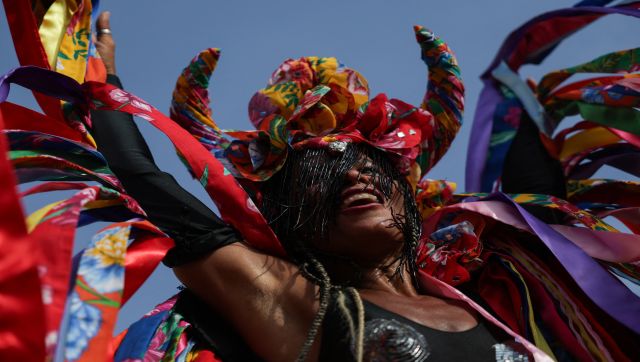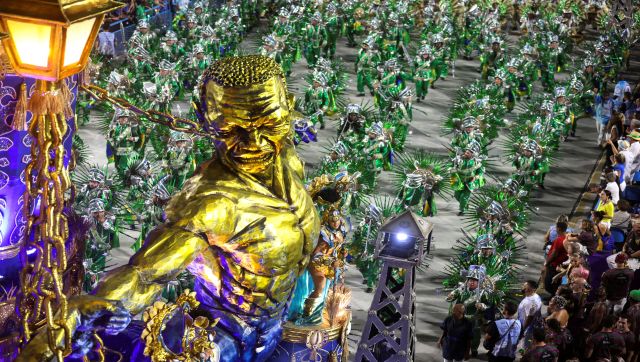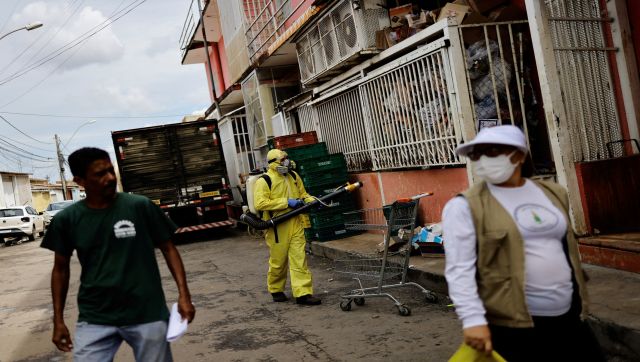How rising dengue cases could play party pooper at Rio Carnival
How rising dengue cases could play party pooper at Rio Carnival

The Rio Carnival, the biggest and brightest celebration on Earth is just two days away — it is to begin on 9 February and run until 17 February. However, this cacophony of colour and the ‘world’s biggest party’ is under threat, a threat of mosquitoes.
Medical authorities of Brazilian city of Rio de Janeiro — where the annual carnival is held — have declared a health emergency owing to the rapid rise in dengue fever cases. While officials say the infections won’t derail the Carnival, it has prompted a slew of special measures by the city in hopes of containing the illness.
What’s going on in Rio? How bad is the situation? We get you the answers.
Dengue fever in Rio
The city of Rio has seen an explosion of dengue fever since the start of 2024. For the unaware, dengue is a viral infection transmitted to humans through the bite of infected mosquitoes and is more common in tropical climates. Frequent rains and high temperatures make the famously hot city of Rio susceptible to dengue outbreaks.
According to health officials, Rio has already registered a whopping 10,000 cases so far, compared to 23,000 for the whole of 2023.
And in light of the growing dengue cases and the upcoming Carnival, which will see an additional influx of tourists from around the world, the authorities have taken measures to control the situation.
Rio city hall has announced that 10 treatment centres will be opened for people with dengue. The city’s health secretary, Daniel Soranz, told the BBC that the aim was to decrease the risk of serious cases and deaths caused by the illness. “Early treatment makes all the difference,” he was quoted as saying.

Health officials have also urged the residents of Rio to use repellents to avoid mosquito bites. In addition, the mayor of Rio, Eduardo Paes, has urged that residents remove sources of still water, used by mosquitoes as breeding grounds. “Unlike the COVID-19 pandemic, in which individual citizens couldn’t do much more than demand that governments get the vaccine, in the case of dengue much depends on the action of each citizen,” Paes was quoted as telling news agency AP.
The authorities have also initiated a “Against Dengue Every Day” campaign in which repellents, stickers and bandanas with warnings about the disease will be handed out to audiences at the Sambadrome — the venue of the Rio Carnival.
Additionally, fumigation drives will be carried out in areas recording huge number of cases.
Carnival impact on Brazil
However, some believe that the rise in dengue cases could play spoilsport for the upcoming Rio Carnival. But officials have allayed these fears, saying they were monitoring the situation closely.
For Brazil, the Carnival goes beyond just celebrations. It has a significant impact on the Latin American country’s economy — hotels see an uptick in occupancy, tourists spend millions in stores, and thousands land temporary jobs as guides, vendors, musicians and performers.

This year, according to the CNC — National Confederation of Trade in Goods, Services and Tourism — the Carnival is expected to inject 9 billion Brazilian real ($1.8 billion or Rs 15,045 crore).
In fact, in 2021 when the Carnival festivities were cancelled on account of COVID, analysts had found that the country lost about $1.5 billion and nearly 25,000 jobs weren’t created. CNC’s economist Fabio Bentes had then Anadolu Agency, “The cancellation had a very negative impact on an industry that, by far, has suffered more from the pandemic,” referring to the services industry.
Brazil’s dengue burden
However, it is not just Rio’s Carnival that is under threat from dengue; the entire country is struggling with a rapid rise of dengue cases.
The country with a population of 213 million has registered 345,235 likely cases of dengue in the first five weeks of the year, nearly four times the number registered over the same period last year. Thirty-one people have died of dengue, according to the Brazilian health ministry. And it is still analysing another 234 deaths that may have been caused by the disease.

Other states such as Acre, Minas Gerais and Goias have also declared public health emergencies owing to dengue cases. In fact, the health secretary of Minas Gerias, Fabio Baccheretti, blamed high temperatures for the quick spread of the viral infection Brazil has been experiencing in recent months.
Also read: How scientists engineered mosquitoes that cannot spread malaria
Brazil’s health minister Nísia Trindade has urged people to keep vigilant and not allow for any water to collect.
Additionally, officials plan to start a new dengue vaccine campaign. Last year, the country became the first in the world to offer a dengue vaccine through the public health system.
With inputs from agencies
What's Your Reaction?



























































